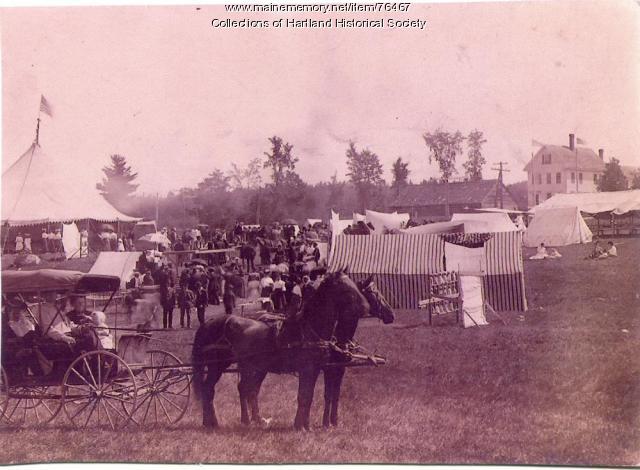Keywords: Somerset County
Item 36019
Officers of Somerset County, 1895
Contributed by: Skowhegan History House Date: 1895 Location: Maine Media: Photographic print
Item 7579
Somerset County voting record, 1816
Contributed by: Maine Historical Society Date: 1816 Location: Anson; Avon; Athens; Bloomfield Media: Ink on paper
Item 59796
Assessor's Record, Storage, Somerset Street, Portland, 1924
Owner in 1924: Portland Stove Foundry Company Use: Storage - Sand
Item 59797
Assessor's Record, Storage, Somerset Street, Portland, 1924
Owner in 1924: Portland Stove Foundry Company Use: Storage - Cooling Bunkers
Item 151582
Somerset County Court House, Skowhegan, 1873-1904
Contributed by: Maine Historical Society Date: 1873–1904 Location: Skowhegan Client: Somerset County Architect: John Calvin Stevens
Item 150856
Somerset County Courthouse, Skowhegan, 1928
Contributed by: Maine Historical Society Date: 1928 Location: Skowhegan Client: Somerset County Architect: Harry S. Coombs
Exhibit
Student Exhibit: Historic Buildings on Madison Ave in Skowhegan
Take a tour and see some of the beautiful old buildings that used to be on Madison Avenue, Skowhegan? A few still remain, but most have been torn down.
Exhibit
Civil War Soldiers Impact Pittsfield
Although not everyone in town supported the war effort, more than 200 Pittsfield men served in Civil War regiments. Several reminders of their service remain in the town.
Site Page
New Portland: Bridging the Past to the Future - New Portland: Bridging the Past to the Future
"… Portland, is the county line between Franklin and Somerset counties. David Hutchins, originally from Massachusetts and a descendent of English…"
Site Page
New Portland: Bridging the Past to the Future - North New Portland Village
"… thee villages in the town of New Portland, ME., Somerset County. It was first called Gilman Stream Rips and is located about twenty miles Northwest…"
Story
Rug Hooking Project with a Story
by Marilyn Weymouth Seguin
My grandmother taught me the Maine craft of rug hooking when I was a child.
Story
I have thought about Vietnam almost every day for 48 years
by Ted Heselton
Working as a heavy equipment operator in Vietnam
Lesson Plan
Longfellow Studies: "The Jewish Cemetery at Newport"
Grade Level: 6-8, 9-12
Content Area: English Language Arts, Social Studies
Longfellow's poem "The Jewish Cemetery at Newport" opens up the issue of the earliest history of the Jews in America, and the significant roles they played as businessmen and later benefactors to the greater community. The history of the building itself is notable in terms of early American architecture, its having been designed, apparently gratis, by the most noted architect of the day. Furthermore, the poem traces the history of Newport as kind of a microcosm of New England commercial cities before the industrialization boom. For almost any age student the poem could be used to open up interest in local cemeteries, which are almost always a wealth of curiousities and history. Longfellow and his friends enjoyed exploring cemeteries, and today our little local cemeteries can be used to teach little local histories and parts of the big picture as well.
Henry Wadsworth Longfellow visited the Jewish cemetery in Newport, RI on July 9, 1852. His popular poem about the site, published two years later, was certainly a sympathetic portrayal of the place and its people. In addition to Victorian romantic musings about the "Hebrews in their graves," Longfellow includes in this poem references to the historic persecution of the Jews, as well as very specific references to their religious practices.
Since the cemetery and the nearby synagogue were restored and protected with an infusion of funding just a couple years after Longfellow's visit, and later a congregation again assembled, his gloomy predictions about the place proved false (never mind the conclusion of the poem, "And the dead nations never rise again!"). Nevertheless, it is a fascinating poem, and an interesting window into the history of the nation's oldest extant synagogue.









